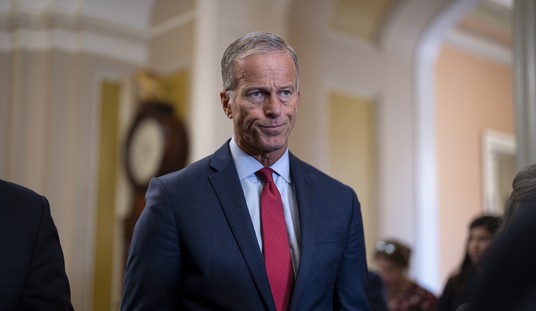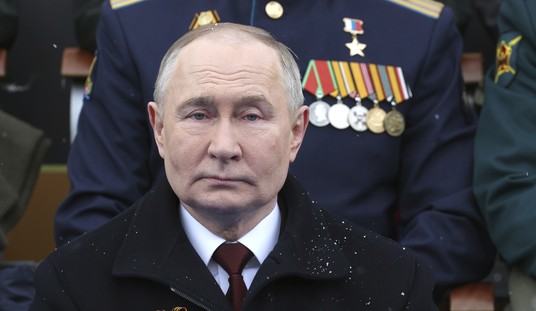The Republican primary race looks very fluid as we head into New Hampshire, albeit against a backdrop of an enormous lead for Donald Trump in the New Hampshire polls taken before his second-place finish in the Iowa Caucus. It is worth reviewing how the New Hampshire electorate is likely to differ from the Iowa Caucus electorate.
Obviously a primary has a much bigger turnout than a caucus, and New Hampshire generally is a very high-turnout state (as usual, all eligible-voter numbers from ElectProject):

8.17% of all eligible Iowa voters voted in this year’s GOP Caucus, and that’s a dramatic increase from the last two cycles, when it was steady around to 5.4%. Even compared to the number of people who showed up to vote for McCain or Romney in November, only about 17% of all Republican general election voters caucused those years.
By contrast, almost a quarter of all eligible New Hampshire voters showed up for the Republican primaries in 2008 and 2012, and when you compare the GOP primary turnout to the final McCain/Romney vote, it’s around 75% – which is how the New Hampshire primary electorate is twice the size of the Iowa Caucus electorate even though the eligible voting age population of New Hampshire is half that of Iowa. If turnout surged compared to past years at the same rate it did in Iowa (which is unlikely since it’s so high to start with, but bear with me), we’d see something on the order of 380,000 votes in New Hampshire, well over a third of all the state’s potential voters and more than the number of votes either McCain or Romney won in the general election.
And the makeup of those voters is also quite different. One way to illustrate how is with a little math. I re-ran the results from the Iowa “entrance polls” to compute each candidate’s share of certain blocs of voters (backing out the voters for Paul, Huckabee and Santorum), and ran them against the demographic breakdowns in the 2012 New Hampshire primary exit polls. For example, if each candidate won the same share of Republicans, the same share of independents, and the same share of Democrats as they did in Iowa, how would their results look different in New Hampshire, assuming a 2012-style breakdown:

Unfortunately, we don’t have a breakdown of how Democrats voted in Iowa (they were just 2% of the caucus goers), but even in 2012, with no Democratic primary, they were only 4% of all GOP primary voters. One assumes most of that vote will go to Trump and Kasich, but it’s a small factor so I left it out here. As Jim Geraghty notes, Democrats are allowed to vote in the GOP New Hampshire primary only if they re-registered as a Republican or an independent by October 30, so if Trump or Kasich wants to bring over a bunch of those voters, they needed their ground organization to be registering them months ago (this seems unlikely).
Anyway, as you can see, we are switching from an electorate that is 79% Republican to one that is maybe half Republican – it was 49% in 2012, and probably will be similar this time. A lot more independents may show up, but some will be voting in the Democratic primary. I can’t find party breakdowns for 2008, but the 2008 exits had about the same self-identified ideological breakdown as 2012, so the presence of a contested Democratic race may not alter the balance that much.
The main impact, if voting shares from Iowa held constant, would be to hurt Ted Cruz (who predictably did much better with Republicans than independents) but help Ben Carson and John Kasich, who actually did better in Iowa with independents (Trump and Rubio both did only slightly better with Republicans than independents). Of course, Carson is unlikely to be a factor in New Hampshire and the trio of Kasich/Jeb/Christie is much more engaged there, which will alter the mix.

If you thought the party breakdowns were bad news for Cruz in New Hampshire, it gets a lot worse when you consider ideology and religion. Again, Cruz’s dominance among Very Conservative and evangelical Christian voters is of little use to him in New Hampshire, and rebalancing the electorate for either of those factors would, by itself, swing the vote to Trump. (This is part of why Trump has had a double-digit lead there since early August). We go from an electorate that was 40% Very Conservative, 64% evangelical and 15% moderate or liberal to one that is just 21% Very Conservative, 22% evangelical and 47% moderate or liberal.
Notably, the New Hampshire exit polls also asked about social-issue vs fiscal ideology, and New Hampshire primary voters described themselves as evenly split between Very Conservative (34%) and moderate/liberal (35%) on fiscal issues, but on social issues 62% call themselves moderate/liberal vs 24% Very Conservative. This is why you have, say, Jeb Bush accusing Marco Rubio of being too pro-life, something you didn’t hear in Iowa.

Education is a big split between Trump and Rubio, as Trump has persistently run strongest in the polls with the least educated voters, and did so in Iowa, where Rubio cleaned up among college graduates. The New Hampshire primary electorate on the whole is – due in large part to higher turnout – likely to be less educated than Iowa’s.
New voters are a wild card: 45% of caucusgoers identified themselves as first-timers, whereas due to regular high turnout in New Hampshire, only 12% of 2012 New Hampshire primary voters were first timers.
Anyway, these are just illustrations, as the wider field and shifts in momentum are likely to break things out differently than in Iowa. And it’s important to remember that these factors interact with each other, plus with other factors like the urban/rural divide (Rubio won the cities in Iowa, but New Hampshire isn’t notably more or less urban than Iowa, although it has less very rural population). And there are other factors like racial/ethnic background that start to matter in states less white than these two.
But it’s important to remember as we go from state to state that a winning coalition in one state can easily be a loser in another one.












Join the conversation as a VIP Member